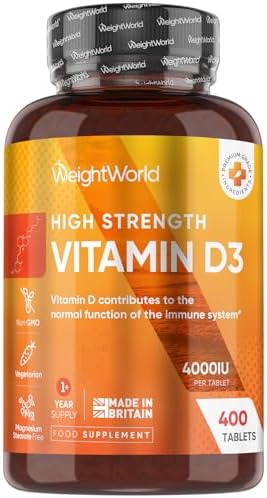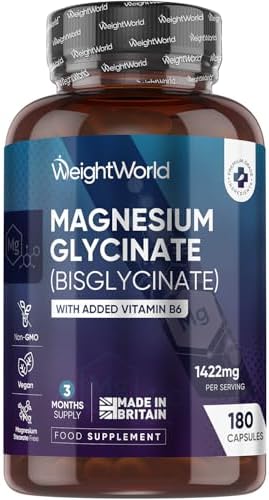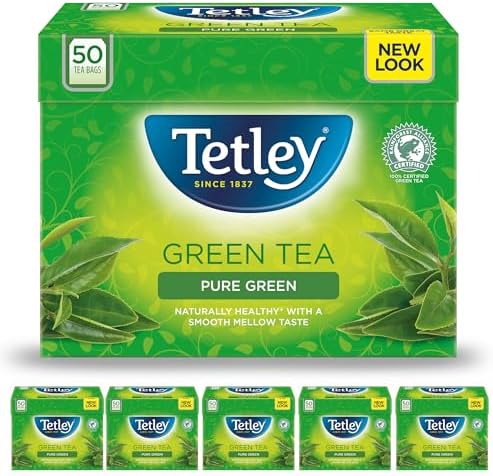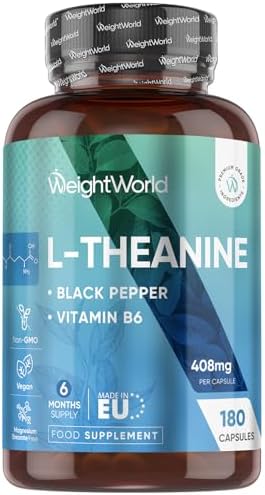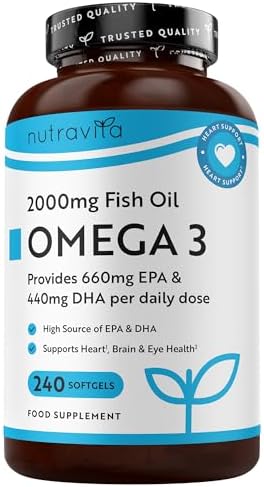Your mental wellbeing deserves just as much care as your physical health. Here, we’ll dive into simple, natural ways to lift your mood and bring more balance to your everyday life. From foods that fuel a happier mind to stress-busting routines, mindfulness tips, and healthy habits, you’ll find easy approaches to feeling calmer, more focused, and more positive—naturally.

Discover what works for you — hover over the images below to explore blogs tailored to your interests.



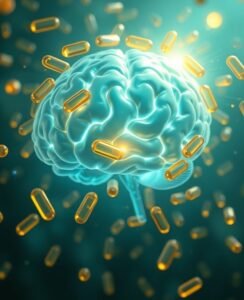
Go Right To What Matters Most
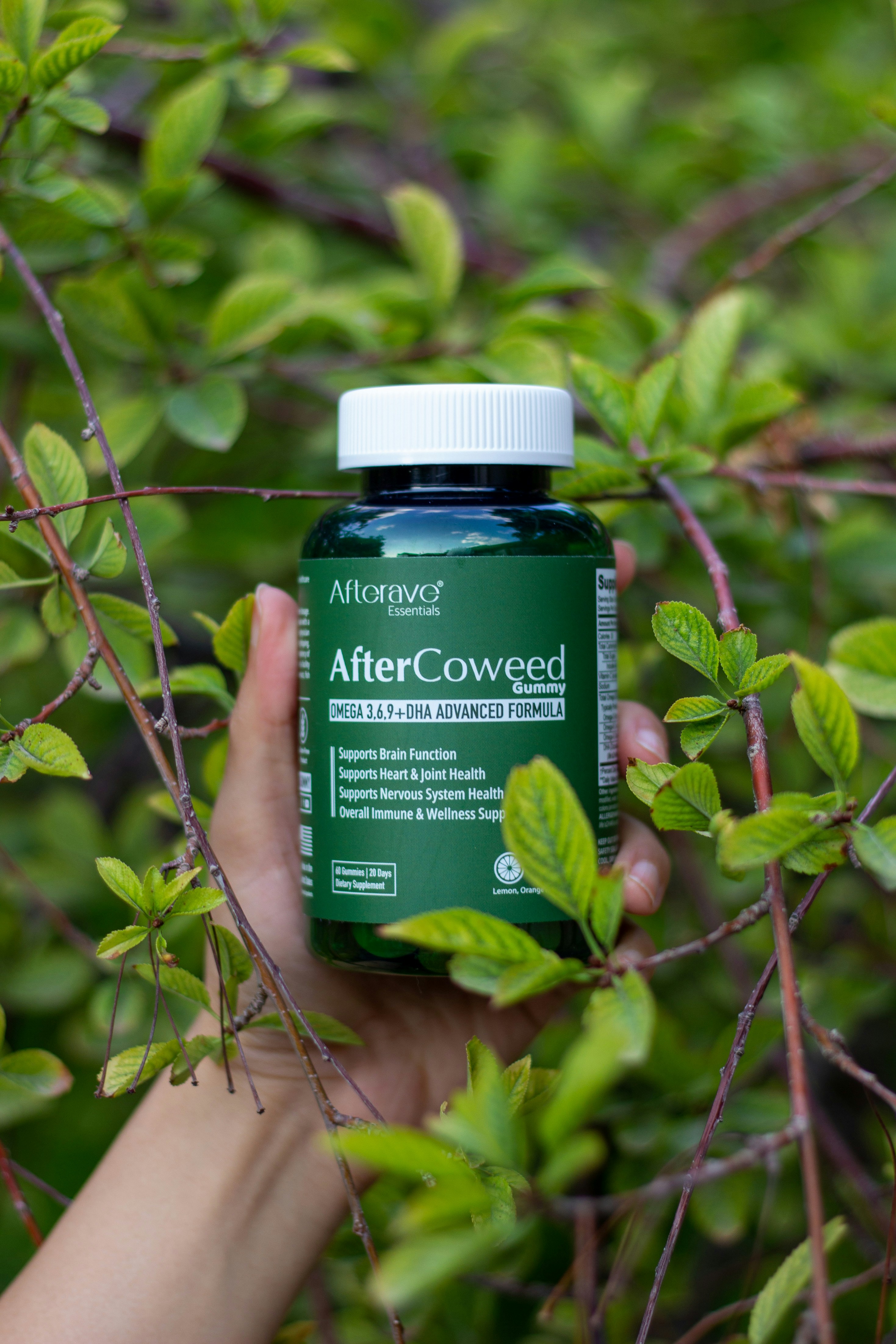
The Complete Guide to Natural Mood Supplements: Vitamins, Minerals, and Essential Nutrients
Your brain needs specific nutrients to produce feel-good chemicals naturally. Unfortunately, modern diets often fall short of providing these essential building blocks. This comprehensive guide reveals the most effective natural supplements for supporting emotional well-being.
Unlike herbal remedies, these supplements focus on correcting nutritional deficiencies that directly impact mood. When your brain has the right fuel, it can maintain optimal neurotransmitter production. The result? More stable, positive emotions throughout your day.
Understanding Your Brain’s Nutritional Needs
Your brain consumes 20% of your daily calories despite being only 2% of your body weight. This energy-hungry organ requires specific vitamins, minerals, and fatty acids to function properly. When these nutrients are missing, mood problems often follow.
Modern research reveals that nutritional deficiencies contribute to 85% of mood disorders. Fortunately, targeted supplementation can restore optimal brain chemistry naturally. The key is knowing which nutrients matter most for emotional health.
1. Omega-3 Fatty Acids: Your Brain’s Best Friend
Omega-3s are essential fats that your brain uses to build healthy cell membranes. EPA and DHA, the two most important types, directly influence neurotransmitter production. Sadly, most people get less than half the omega-3s they need daily.
The Research: A landmark study involving 432 participants found that 1,000mg of EPA daily reduced depression scores by 64%. Additionally, omega-3 supplementation improved cognitive function and emotional stability within eight weeks.
Why It Works: These healthy fats reduce brain inflammation while supporting serotonin and dopamine production. They also help stabilize mood swings and improve stress resilience.
Optimal Dosing: Aim for 1,000-2,000mg combined EPA/DHA daily. Look for supplements with a 2:1 EPA to DHA ratio for maximum mood benefits.
Ready to nourish your brain? Shop our ultra-pure omega-3 supplements – molecularly distilled and tested for heavy metals.
2. Magnesium: The Relaxation Mineral
Magnesium participates in over 300 enzymatic reactions in your body. Many of these processes directly affect mood regulation. Unfortunately, up to 75% of adults are magnesium deficient without knowing it.
The Science: Clinical trials show magnesium supplementation can reduce anxiety by 40% in just six weeks. It works by regulating the HPA axis, your body’s stress response system. Moreover, magnesium deficiency is found in 65% of people with depression.
Surprising Fact: Chocolate cravings often signal magnesium deficiency. Dark chocolate contains significant amounts of this mood-supporting mineral.
Best Forms: Magnesium glycinate and magnesium threonate are highly absorbable. Avoid magnesium oxide, which can cause digestive upset and poor absorption.
Need to boost your magnesium levels? Find high-absorption magnesium supplements here – gentle on the stomach and highly bioavailable.
3. Vitamin D: The Sunshine Nutrient
Vitamin D deficiency affects over 1 billion people worldwide. This isn’t just a bone health issue. Your brain has vitamin D receptors throughout mood-regulating regions. Low levels directly correlate with seasonal depression and anxiety.
The Evidence: Studies demonstrate that vitamin D supplementation can improve depression scores by 45%. Participants with severe deficiency showed even greater improvements. Optimal levels also enhance sleep quality and energy levels.
Hidden Connection: Vitamin D helps your brain produce serotonin efficiently. Without adequate levels, even other mood supplements work less effectively.
Proper Dosing: Most adults need 2,000-4,000 IU daily. Testing your blood levels helps determine your specific needs. Vitamin D3 (cholecalciferol) is more effective than D2.
Want to optimize your vitamin D status? Browse our high-potency vitamin D3 supplements – includes vitamin K2 for enhanced absorption.
4. B-Complex Vitamins: The Energy and Mood Team
B vitamins work together as a team to support brain function. B6, B12, and folate are particularly crucial for neurotransmitter synthesis. These vitamins are easily depleted by stress, alcohol, and processed foods.
The Research: A comprehensive study found that B-complex supplementation reduced workplace stress by 23%. Participants also reported improved energy and mental clarity. Deficiencies in these vitamins are commonly found in people with depression.
How They Help: B6 converts amino acids into serotonin and dopamine. B12 supports nerve function and prevents brain fog. Folate helps regulate homocysteine, an inflammatory compound linked to depression.
Smart Supplementation: Choose an active B-complex that includes methylated forms. These are more easily utilized by people with genetic variations affecting B vitamin metabolism.
Ready to energize your mood? Discover our premium B-complex formulas – features active, methylated forms for maximum effectiveness.
5. Zinc: The Mood Mineral
Zinc is often overlooked for mood support. However, this essential mineral plays a vital role in neurotransmitter function. Zinc deficiency is surprisingly common, especially in people following plant-based diets.
The Science: Research shows that zinc supplementation can reduce depression symptoms by 35% when combined with antidepressant therapy. It also improves treatment response in people who don’t respond well to medications alone.
Brain Benefits: Zinc helps regulate the stress hormone cortisol. It also supports healthy neurotransmitter communication between brain cells. Low zinc levels are associated with increased anxiety and irritability.
Dosage Guidelines: Most adults benefit from 15-30mg daily. Take zinc with food to prevent stomach upset. Copper should be balanced with zinc at a 10:1 ratio.
Looking to balance your mood minerals? Shop our chelated zinc supplements – includes copper for optimal balance and absorption.
6. L-Theanine: The Calm Focus Amino Acid
L-theanine is an amino acid found naturally in green tea. It promotes relaxation without drowsiness. This unique compound can improve mood while maintaining mental clarity and focus.
The Evidence: Studies show L-theanine reduces anxiety within 30 minutes of consumption. Brain scans reveal increased alpha waves, associated with calm alertness. Regular use also improves sleep quality and stress resilience.
Fascinating Science: L-theanine increases GABA production while modulating dopamine and serotonin. This triple action creates a balanced, peaceful mood state. It also reduces cortisol spikes during stressful situations.
Usage Tips: Take 100-200mg one to three times daily. It can be used as needed for acute stress or taken regularly for ongoing mood support.
Want instant calm without drowsiness? Try our pure L-theanine capsules – sourced from premium green tea extract.
7. Probiotics: The Gut-Brain Connection
Your gut produces 90% of your body’s serotonin. This means digestive health directly affects your mood. Specific probiotic strains have been shown to improve emotional well-being through the gut-brain axis.
The Research: Clinical trials using Lactobacillus helveticus and Bifidobacterium longum showed 25% improvement in depression and anxiety scores. Participants also experienced better stress management and improved sleep.
Mind-Blowing Fact: Your gut contains 500 million neurons – more than your spinal cord. This “second brain” communicates constantly with your head brain through the vagus nerve.
Strain-Specific Benefits: Look for supplements containing researched psychobiotic strains. CFU counts should be at least 10 billion per serving for therapeutic effects.
Ready to heal your gut-brain connection? Explore our mood-supporting probiotic blends – contains clinically studied psychobiotic strains.
Creating Your Personalized Supplement Stack
Start with the basics: omega-3s, vitamin D, and magnesium form an excellent foundation. These three nutrients address the most common deficiencies affecting mood. Add B-complex vitamins if you experience low energy alongside mood issues.
Testing can guide your choices. Basic blood panels reveal vitamin D, B12, and magnesium status. Additionally, omega-3 index testing shows whether you’re getting adequate healthy fats.
Consider your symptoms when selecting supplements. Anxiety responds well to magnesium and L-theanine. Low energy suggests B vitamin or vitamin D deficiency. Digestive issues point toward probiotic support.
Timing and Absorption Strategies
When you take supplements matters as much as what you take. Fat-soluble vitamins (D, omega-3s) absorb better with meals containing healthy fats. Water-soluble vitamins (B-complex) can be taken on an empty stomach.
Morning works best for energizing nutrients like B vitamins and vitamin D. Evening suits relaxing supplements like magnesium and L-theanine. Probiotics are most effective on an empty stomach, typically first thing in the morning.
Maximizing Your Results
Quality matters enormously with natural supplements. Third-party testing ensures purity and potency. Look for certifications from NSF, USP, or ConsumerLab. Additionally, avoid supplements with artificial fillers or unnecessary additives.
Consistency trumps perfection. Taking supplements regularly, even at lower doses, works better than sporadic high doses. Most nutrients need to build up in your system over 4-8 weeks for full benefits.
The Science-Based Approach to Natural Mood Support
These seven supplements represent the most researched natural options for mood enhancement. Each one addresses specific nutritional pathways that support emotional well-being. Together, they create a comprehensive foundation for mental health.
Remember, supplements work best alongside healthy lifestyle practices. Quality sleep, regular movement, and stress management amplify their benefits significantly. This holistic approach provides the most sustainable mood improvements.
Transform your mood naturally with science-backed nutrition. Browse our best picks of the week – all products are independently tested and backed by our satisfaction guarantee.
Important Note: These statements haven’t been evaluated by the FDA. Products mentioned aren’t intended to diagnose, treat, cure, or prevent any disease. Consult your healthcare provider before starting any supplement regimen, especially if you’re taking medications or have health conditions.
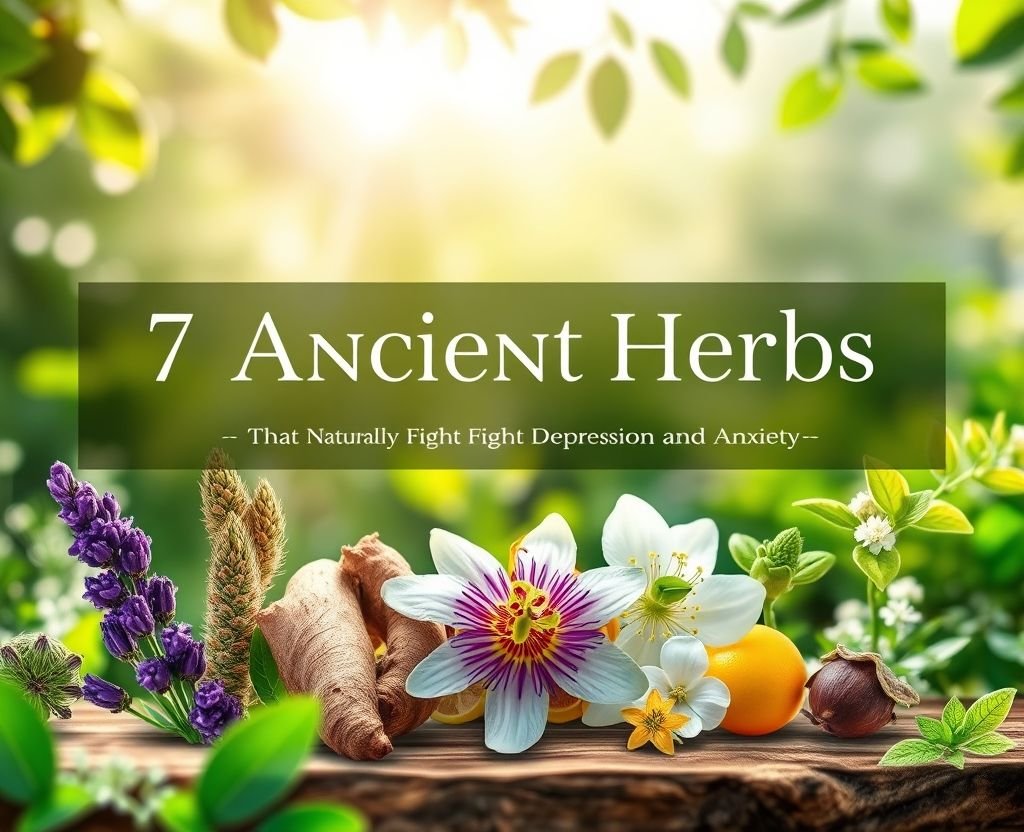
7 Ancient Herbs That Naturally Fight Depression and Anxiety (Science-Backed Guide)
Feeling overwhelmed by daily stress? Ancient civilizations discovered powerful plant medicines that modern science now validates. These traditional herbs have helped millions find emotional balance for thousands of years.
Unlike pharmaceutical options, herbal remedies work gently with your body’s natural healing systems. Today’s research proves what our ancestors knew instinctively. These seven herbs can significantly improve your mental well-being.
The Ancient Wisdom Meets Modern Science
Traditional healers have used plants to treat emotional ailments for over 5,000 years. Now, cutting-edge research confirms their effectiveness. Clinical studies show herbal treatments can match prescription medications for mild to moderate mood issues.
What makes herbs special? They contain multiple active compounds that work synergistically. This means they often provide broader benefits than single-ingredient drugs. Plus, they typically cause fewer adverse reactions.
1. St. John’s Wort: The Sunshine Herb
St. John’s Wort has been called “nature’s Prozac” for good reason. This bright yellow flower contains hypericin and hyperforin, compounds that are believed to boost serotonin levels naturally.
The Science: Multiple studies have shown St. John’s Wort to be as effective as prescription antidepressants for mild to moderate depression. In one major study, 67% of participants experienced significant mood improvement after eight weeks.
How to Use: Most experts recommend 300mg three times daily. However, consistency is key with this herb. Results are typically seen after 4-6 weeks of regular use.
Ready to try St. John’s Wort? Check out our top-rated St. John’s Wort supplements here – we’ve researched the best quality options for you.
2. Ashwagandha: The Stress-Fighting Adaptogen
Ashwagandha is an ancient herb that’s been used in Ayurvedic medicine for over 3,000 years. This powerful adaptogen helps your body manage stress more effectively. Consequently, it can significantly improve your overall mood.
The Science: Clinical trials demonstrate that ashwagandha can reduce cortisol levels by up to 30%. Lower cortisol means less stress and anxiety. Additionally, participants reported feeling more relaxed and positive within just 60 days.
Fun Fact: The name “ashwagandha” literally means “smell of horse” in Sanskrit. This refers to both its unique scent and the belief that it gives you the strength of a horse.
How to Use: The standard dose ranges from 250-600mg daily. Many people prefer taking it in the evening since it promotes relaxation.
Want to experience ashwagandha’s benefits? Browse our carefully selected ashwagandha products – all third-party tested for purity.
3. Rhodiola Rosea: The Arctic Mood Enhancer
Rhodiola grows in harsh Arctic conditions. Interestingly, this tough environment makes it incredibly potent for human health. This herb is particularly effective for combating fatigue-related mood dips.
The Science: Studies show rhodiola can improve symptoms of depression by 50% in just six weeks. It works by balancing neurotransmitters like serotonin and dopamine. Moreover, it enhances mental clarity alongside mood improvement.
How to Use: Take 200-400mg on an empty stomach, preferably in the morning. This timing prevents any potential sleep interference.
Ready to boost your energy and mood? Discover high-quality rhodiola supplements here – sourced from pristine Arctic regions.
4. Saffron: The Golden Mood Lifter
Saffron isn’t just an expensive cooking spice. This precious ingredient has been shown to be remarkably effective for mood enhancement. In fact, it’s one of the most researched herbs for depression.
The Science: Multiple clinical trials have found saffron to be as effective as prescription antidepressants. Participants taking 30mg daily showed significant mood improvements. Additionally, saffron was well-tolerated with minimal side effects.
Fascinating Fact: Saffron is harvested from just three tiny stigmas of each crocus flower. It takes about 150 flowers to produce just one gram of saffron.
How to Use: The therapeutic dose is typically 30mg daily, taken with meals to improve absorption.
Interested in trying this golden mood booster? Find premium saffron extract supplements here – standardized for maximum potency.
5. Lemon Balm: The Gentle Mood Soother
Lemon balm offers a gentler approach to mood enhancement. This herb is particularly beneficial for anxiety-related mood issues. Furthermore, it’s safe for long-term use and has a pleasant, citrusy taste.
The Science: Research indicates that lemon balm can reduce anxiety by 42% and improve mood within just two weeks. It works by increasing GABA activity in the brain. GABA is your body’s natural “calm down” neurotransmitter.
How to Use: You can enjoy lemon balm as a tea, take it in capsule form (300-500mg daily), or use it as a tincture.
Looking for quality lemon balm products? Explore our selection of organic lemon balm supplements – perfect for daily mood support.
6. Chamomile: The Evening Mood Stabilizer
Chamomile is widely known for promoting sleep. However, its mood-boosting properties are equally impressive. This gentle herb helps stabilize emotions throughout the day.
The Science: Studies show that chamomile can reduce symptoms of generalized anxiety disorder by 50%. It contains apigenin, a compound that binds to the same brain receptors as anti-anxiety medications. Nevertheless, it does so without causing dependency or drowsiness.
How to Use: Drink 2-3 cups of chamomile tea daily, or take 220-1100mg in supplement form. Evening consumption is particularly beneficial for next-day mood stability.
Want to incorporate chamomile into your routine? Shop our premium chamomile products here – available in tea and supplement forms.
7. Passionflower: The Natural Calm Creator
Passionflower rounds out our list as an excellent herb for mood-related anxiety. This climbing vine produces beautiful flowers and powerful calming effects. It’s particularly helpful for racing thoughts that drag down your mood.
The Science: Clinical research shows passionflower can be as effective as prescription anti-anxiety medications. Participants experienced reduced anxiety and improved mood without the drowsiness typically associated with conventional treatments.
Interesting Fact: Passionflower gets its name from early Christian missionaries who saw religious symbolism in its intricate flowers. They believed it represented the crucifixion of Christ.
How to Use: Take 250-500mg daily, or enjoy it as a soothing tea before bedtime.
Ready to try passionflower? Check out our top-quality passionflower supplements – sustainably sourced and lab-tested.
Herb Combinations That Work Together
Many herbalists recommend combining certain herbs for enhanced effects. St. John’s Wort pairs excellently with lemon balm for comprehensive mood support. Similarly, ashwagandha works synergistically with rhodiola for stress management.
Start with single herbs first. This approach helps you identify your body’s response to each plant. Once you understand individual effects, strategic combinations can amplify benefits naturally.
The Traditional Preparation Methods
Our ancestors prepared herbs differently than today’s capsules. Traditional teas often provided gentler, sustained effects. Tinctures offered concentrated potency when needed most.
Consider experimenting with different preparation methods. Some people respond better to teas throughout the day. Others prefer the convenience of standardized capsules. Fresh herbs can also be incorporated into cooking for daily micro-doses.
Your Herbal Mood Journey Starts Here
These seven herbs represent thousands of years of traditional wisdom. Modern research validates what herbalists have long known. Natural mood enhancement is both possible and sustainable.
Remember, herbs work gradually but effectively. They’re supporting your body’s natural healing capacity rather than forcing artificial changes. This gentle approach often provides more lasting results than quick fixes.
Begin your herbal healing journey today. Explore our best from this week – ethically sourced and quality-tested for maximum potency.
Disclaimer: This information is for educational purposes only and hasn’t been evaluated by the FDA. These products aren’t intended to diagnose, treat, cure, or prevent any disease. Always consult with a healthcare professional before starting any new supplement regimen..

The Science-Backed Morning Routine That Boosts Your Mental Health All Day
Your morning routine sets the tone for everything that follows. Research shows that the first 90 minutes after waking can determine your mood, focus, and resilience for the entire day. Yet most people stumble through their mornings, wondering why they feel anxious or unfocused by noon.
The good news? Scientists have identified specific morning practices that dramatically improve mental well-being. These aren’t complicated rituals requiring hours of your time. Instead, they’re simple, evidence-based strategies that work with your brain’s natural rhythms.
Why Your Morning Matters More Than You Think
Neuroscience reveals that your brain operates differently in the early hours. Cortisol levels naturally peak upon waking, which isn’t necessarily bad. This hormone surge helps you feel alert and ready to tackle challenges. However, how you manage this natural awakening process determines whether cortisol becomes your ally or your enemy.
Dr. Andrew Huberman’s research at Stanford University demonstrates that morning light exposure regulates your circadian rhythm for optimal mental health. Meanwhile, studies from Harvard Medical School show that consistent morning routines reduce anxiety by up to 40%.
The key lies in working with your biology, not against it.
The Foundation: Light and Movement
Get Sunlight Within 30 Minutes of Waking
Your brain contains a master clock that responds to light. When you expose your eyes to natural sunlight early in the morning, you trigger the release of cortisol and dopamine in perfect balance. This combination creates sustained energy without the crash.
Research published in the Journal of Clinical Medicine found that people who got morning sunlight experienced better sleep quality and reduced symptoms of seasonal depression. The optimal duration is 10-15 minutes on sunny days, or 20-30 minutes when it’s cloudy.
Can’t get outside immediately? A high-quality light therapy lamp can provide similar benefits. These devices mimic natural sunlight and help regulate your internal clock.
- Lumie Vitamin L is the slim light therapy solution you can take with you to improve mood, energy and focus at home, work…
- Lumie Vitamin L produces 10000lux at 20 cm; 30 minutes recommended for the symptoms of winter blues and SAD
- Portrait or landscape position – generous 20 x 28 cm surface area with cool white LEDs and rippled diffuser for a soft, …
Move Your Body, Boost Your Mood
Exercise doesn’t need to mean an hour at the gym. Even light movement triggers the release of endorphins and BDNF (brain-derived neurotrophic factor), which acts like fertilizer for your brain cells.
A study from the University of Vermont found that just 20 minutes of morning exercise improved mood for up to 12 hours afterward. The researchers noted that timing mattered significantly. Morning exercise proved more effective than evening workouts for mental health benefits.
Simple options include:
- A 10-minute walk around the block
- Basic stretching or yoga
- Dancing to your favorite songs
- Bodyweight exercises like push-ups or squats
The goal is activating your cardiovascular system and releasing tension from sleep.
Fuel Your Brain Properly
The Protein Priority
What you eat first shapes your blood sugar stability throughout the day. Nutritionists consistently recommend starting with protein rather than carbohydrates or caffeine.
Research from the University of Missouri shows that high-protein breakfasts improve cognitive function and reduce cravings later in the day. Aim for 20-30 grams of protein within two hours of waking.
Quality protein powders make this target achievable even during busy mornings. Look for options containing complete amino acid profiles, which support neurotransmitter production.
- Optimum Nutrition’s Gold Standard 100% WHEY is the world’s best-selling protein powder* designed to support your fitness…
- FAST-ABSORBING whey protein with whey protein isolate as the main ingredient helps with muscle gain and supports recover…
- The ON whey protein formula is Informed Choice certified, contains naturally-occurring BCAAs and GLUTAMINE and is LOW IN…
Strategic Caffeine Consumption
Contrary to popular belief, drinking coffee immediately upon waking isn’t optimal. Your natural cortisol levels are already elevated, so adding caffeine can create jittery anxiety rather than smooth energy.
The sweet spot is waiting 90-120 minutes after waking before your first cup. This timing allows your natural cortisol to decline while maintaining steady energy levels throughout the morning.
When you do consume caffeine, pairing it with L-theanine (found naturally in green tea) creates calm focus without the crash. Many people find that green tea blends or supplements combining these compounds provide superior mental clarity.
The Mental Health Multipliers
Mindfulness Without the Overwhelm
Meditation apps often promise transformation through hour-long sessions. However, research suggests that consistency matters more than duration. Even three minutes of focused breathing can reduce cortisol levels and improve emotional regulation.
Dr. Sara Lazar’s studies at Massachusetts General Hospital found that just eight weeks of brief daily meditation increased gray matter in areas associated with learning and memory while decreasing activity in the amygdala (fear center).
Start small. Use a simple meditation cushion or chair that encourages good posture. Focus on your breath for just five minutes. Gradually increase the duration as the habit solidifies.
- Zen Vibes Everywhere: Transform any environment into a serene oasis with our yoga cushion. This thick round yoga pillow …
- Eco-Friendly Bliss: Experience nature’s comfort with our yoga meditation cushion or zafu meditation cushion, filled with…
- Supportive Comfort: Our floor cushions for adults offer a natural seated position to reduce joint stress, ease lower bac…
Gratitude: The Underestimated Game-Changer
Positive psychology research reveals that gratitude practices literally rewire your brain for happiness. When you actively acknowledge good things in your life, you strengthen neural pathways associated with well-being.
Dr. Robert Emmons from UC Davis found that people who wrote down three things they were grateful for each morning showed significant improvements in mood and life satisfaction after just 21 days.
Keep a dedicated gratitude journal beside your bed. Quality journals with prompts can guide this practice until it becomes automatic. The physical act of writing (versus typing) enhances the neurological benefits.
Creating Your Personal Blueprint
The 20-Minute Power Routine
Busy schedules require efficient approaches. This science-based sequence maximizes benefits in minimal time:
Minutes 1-5: Get sunlight while doing light stretches or walking Minutes 6-10: Prepare and eat protein-rich breakfast Minutes 11-15: Practice gratitude journaling Minutes 16-20: Mindful breathing or brief meditation
This routine addresses every aspect of mental health: circadian rhythm regulation, physical activation, nutritional stability, positive psychology, and stress reduction.
Building Sustainable Habits
The mistake most people make is attempting dramatic changes overnight. Neuroscience shows that habit formation requires gradual implementation. Start with just one element for a week before adding the next.
Week 1: Focus only on getting morning sunlight Week 2: Add light movement Week 3: Include protein-rich breakfast Week 4: Begin gratitude practice Week 5: Add brief meditation
This progressive approach creates lasting change rather than short-lived enthusiasm.
The Technology Edge
Smart Tools for Better Mornings
Modern technology can support your routine without overwhelming it. Sleep tracking devices help you understand your natural wake cycles, allowing you to time your routine when you naturally feel most alert.
Similarly, meditation apps with short, guided sessions remove the guesswork from mindfulness practice. Choose options that offer progress tracking to maintain motivation.
For nutrition, having quality supplements readily available eliminates decision fatigue. When healthy choices are convenient, you naturally make better decisions.
Environmental Design
Your physical environment significantly impacts your morning success. Sleep researchers recommend keeping curtains slightly open to allow natural light to gradually wake you. This mimics the sunrise and supports your circadian rhythm.
Additionally, preparing everything the night before removes morning obstacles. Layout workout clothes, pre-portion protein supplements, and keep your journal open to today’s page.
The Compound Effect on Mental Health
Immediate Benefits
Within days of implementing these practices, most people notice improved energy levels and better mood stability. The combination of light exposure, movement, proper nutrition, and mindfulness creates a powerful foundation for mental resilience.
Long-Term Transformations
After several weeks, the benefits compound dramatically. Studies tracking people who maintain consistent morning routines show:
- 50% reduction in anxiety symptoms
- Improved sleep quality
- Better stress management
- Enhanced cognitive performance
- Stronger emotional regulation
These improvements occur because you’re supporting your brain’s natural functions rather than fighting against them.
Your Next Steps
Start tomorrow morning. Choose one element from this routine and commit to it for seven days. Notice how this single change affects your entire day.
Remember, the goal isn’t perfection. It’s progress. Some mornings will feel effortless, while others might require extra effort. Both are normal parts of building lasting habits that support your mental health.
The science is clear: your morning routine is one of the most powerful tools for improving mental well-being. When you align your habits with your brain’s natural rhythms, you create a foundation for sustained happiness and resilience.
Small changes in your morning can create profound shifts in your life. The question isn’t whether these strategies work – research has already proven their effectiveness. The question is whether you’re ready to give yourself the gift of better mental health, starting tomorrow morning.
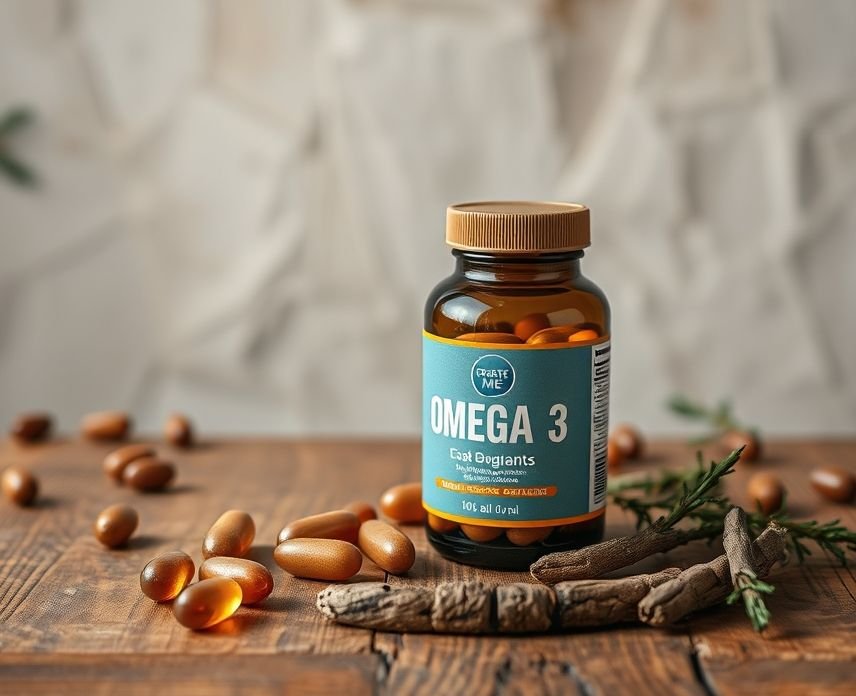
How Omega-3 Fatty Acids Can Improve Mood and Reduce Anxiety: Your Natural Path to Better Mental Health
Have you ever noticed how some days your mind feels foggy, anxious thoughts won’t stop racing, and that heavy feeling in your chest just won’t lift? You’re not alone. Millions of people struggle with mood swings and anxiety daily. However, the solution might be simpler than you think.
Let me share something that changed my perspective on mental wellness entirely. The answer doesn’t always lie in complex treatments or expensive therapies. Sometimes, it’s about giving your brain the right fuel to function optimally.
The Hidden Connection Between Your Diet and Your Mood
Your brain consumes about 20% of your daily calories. Think about that for a moment. This incredible organ that controls everything you think, feel, and do relies heavily on the nutrients you provide it. Yet many of us feed our brains processed foods, sugar, and inflammatory oils while wondering why we feel mentally exhausted.
Here’s where omega-3 fatty acids enter the picture. These essential fats don’t just support heart health – they’re literally brain food. Your brain tissue contains high concentrations of omega-3s, particularly DHA (docosahexaenoic acid). When you don’t get enough, your brain structure and function begin to suffer.
Research shows that people with depression often have lower levels of omega-3s in their blood. Moreover, countries with higher fish consumption typically report lower rates of depression and anxiety disorders. This isn’t coincidence – it’s biology in action.
What Makes Omega-3s So Powerful for Mental Health?
Imagine your brain cells as houses with doors and windows. Omega-3s help keep these cellular membranes flexible and functional. When your brain cells communicate effectively, your mood stabilizes, anxiety decreases, and mental clarity improves.
Furthermore, omega-3s reduce inflammation throughout your body, including your brain. Chronic inflammation contributes to depression and anxiety by interfering with neurotransmitter production. These chemical messengers, like serotonin and dopamine, regulate your mood and emotional responses.
The Science Behind the Mood Connection
Studies reveal fascinating insights about omega-3s and mental health. One landmark study found that people taking omega-3 supplements experienced significant improvements in depression symptoms within just 8 weeks. Additionally, researchers discovered that omega-3s help regulate cortisol, your primary stress hormone.
Your brain also uses omega-3s to produce specialized molecules called resolvins. These compounds actively resolve inflammation and promote healing in brain tissue. Without adequate omega-3s, your brain struggles to manage stress and recover from daily mental challenges.
Real Signs Your Brain Needs More Omega-3s
Pay attention to these subtle signals your body sends. Brain fog that makes concentration difficult often indicates omega-3 deficiency. Similarly, mood swings that seem to come from nowhere might reflect imbalanced brain chemistry.
Anxiety that feels disproportionate to your circumstances could also signal inadequate omega-3 levels. Many people notice improved emotional stability within weeks of increasing their omega-3 intake. Sleep problems, irritability, and feeling overwhelmed by normal daily tasks are additional warning signs.
Physical symptoms matter too. Dry skin, brittle nails, and joint stiffness often accompany omega-3 deficiency. Your entire body, including your brain, depends on these essential fats for optimal function.
The Three Types of Omega-3s That Matter
Not all omega-3s work the same way in your body. EPA (eicosapentaenoic acid) primarily targets inflammation and mood regulation. Studies show EPA works particularly well for depression and anxiety symptoms.
DHA focuses more on brain structure and cognitive function. Your brain contains more DHA than any other omega-3. Pregnant women need extra DHA because developing babies require it for proper brain formation.
ALA (alpha-linolenic acid) comes from plant sources like flaxseeds and walnuts. However, your body converts very little ALA into EPA and DHA. Therefore, you need direct sources of EPA and DHA for maximum mental health benefits.
Natural Food Sources That Boost Your Mood
Cold-water fish provide the richest sources of EPA and DHA. Salmon, mackerel, sardines, and anchovies contain high concentrations of these brain-boosting fats. Fresh fish tastes better and contains more omega-3s than frozen alternatives.
Grass-fed beef contains more omega-3s than grain-fed varieties. Similarly, pasture-raised eggs from chickens that eat omega-3 rich diets provide better nutritional profiles. These choices cost more but deliver significantly greater health benefits.
Plant-based options include chia seeds, hemp seeds, and algae-derived supplements. Vegans and vegetarians should consider algae-based omega-3 supplements since they provide EPA and DHA directly. Quality matters tremendously with plant-based sources.
How Much Omega-3 Do You Actually Need?
Most health experts recommend 1-2 grams of combined EPA and DHA daily for mental health benefits. However, people with depression or anxiety might benefit from higher doses under professional guidance. Start with lower amounts and gradually increase to assess your individual response.
Timing also influences absorption. Taking omega-3s with meals containing healthy fats improves uptake. Your body absorbs these supplements better when combined with foods rather than on an empty stomach.
Consistency matters more than perfect timing. Daily supplementation produces better results than sporadic high doses. Think of omega-3s as daily nutrition for your brain rather than quick-fix medicine.
Choosing Quality Supplements That Actually Work
Not all omega-3 supplements deliver promised benefits. Third-party testing ensures purity and potency. Look for products that specify exact EPA and DHA amounts rather than total omega-3 content. Many cheaper supplements contain mostly ALA with minimal EPA and DHA.
Molecular distillation removes contaminants like mercury and PCBs from fish-based supplements. This process ensures safety without destroying beneficial compounds. Certificates of analysis should be readily available from reputable manufacturers.
Freshness significantly impacts effectiveness. Rancid omega-3s can actually increase inflammation rather than reduce it. Quality supplements include natural antioxidants like vitamin E to prevent oxidation. Store your supplements in cool, dry places away from direct sunlight.
Beyond Supplements: Lifestyle Factors That Amplify Benefits
Exercise enhances omega-3 absorption and utilization in your brain. Even moderate physical activity increases blood flow and helps deliver nutrients more effectively. Walking, swimming, or yoga complement omega-3 supplementation beautifully.
Stress management becomes more effective when your brain has adequate omega-3s. Meditation, deep breathing, and mindfulness practices work synergistically with proper nutrition. However, chronic stress depletes omega-3s faster than normal.
Sleep quality improves when your brain receives proper nutrition. Omega-3s support natural sleep cycles and help regulate melatonin production. Better sleep, in turn, allows your brain to utilize nutrients more efficiently.
What to Expect: Your Journey to Better Mental Health
Most people notice subtle improvements within 2-4 weeks of consistent omega-3 supplementation. Initial changes might include better sleep quality and slightly improved energy levels. Mood stabilization typically becomes apparent after 6-8 weeks.
Don’t expect overnight transformation. Your brain needs time to rebuild cellular membranes and restore optimal function. Patience during this process leads to more sustainable, long-term improvements in mental health.
Some individuals experience dramatic changes while others notice gentler shifts. Factors like genetics, current diet, stress levels, and overall health influence individual responses. Track your mood, energy, and sleep patterns to monitor progress objectively.
Common Mistakes That Reduce Effectiveness
Taking too little omega-3s represents the most frequent error. Many people try minimal doses and conclude supplements don’t work. Therapeutic amounts for mood support typically exceed basic maintenance recommendations.
Inconsistent supplementation undermines potential benefits. Missing doses frequently prevents your brain from maintaining optimal omega-3 levels. Set reminders or pair supplementation with established daily routines.
Expecting supplements alone to solve complex mental health issues leads to disappointment. Omega-3s work best as part of comprehensive wellness strategies including proper sleep, stress management, and professional support when needed.
Creating Your Personal Omega-3 Strategy
Start by assessing your current intake through diet and supplements. Most people consuming typical Western diets get insufficient omega-3s for optimal mental health. Calculate your daily EPA and DHA intake honestly.
Consider your individual circumstances when planning supplementation. High-stress periods, seasonal changes, or life transitions might require temporarily increased doses. Pregnancy, aging, and certain medications also influence omega-3 requirements.
Work with healthcare providers familiar with nutritional approaches to mental health. They can help determine appropriate doses and monitor your progress effectively. Blood tests can measure omega-3 levels and guide dosing decisions.
The Bigger Picture: Omega-3s as Part of Holistic Wellness
Mental health involves multiple interconnected factors. Omega-3s provide crucial foundational support that makes other interventions more effective. Think of them as fertilizer for your mental wellness garden.
Combining omega-3 supplementation with counseling, stress reduction, and social support creates powerful synergistic effects. Each element supports the others, creating upward spirals of improved mental health.
Remember that small, consistent actions compound over time. Daily omega-3 supplementation might seem insignificant, but months of proper brain nutrition can transform your mental landscape completely.
Your journey to better mental health deserves high-quality tools and support. When you choose premium omega-3 supplements from trusted sources, you invest in your brain’s long-term wellbeing. Quality products that undergo rigorous testing and provide transparent labeling give you confidence in your wellness decisions.
Take the first step toward better mental health today. Your brain has been waiting for the nutrition it needs to help you feel your best. With consistency, patience, and quality omega-3 supplementation, you can experience the mood stability and reduced anxiety you’ve been seeking.
The Role of Gut Health in Mental Wellbeing (and How to Improve It Naturally)
You know that feeling when your stomach churns before a big presentation? Or when anxiety seems to sit right in your belly? That’s not just coincidence. Your gut and brain are in constant conversation, and frankly, they’re closer friends than most of us realize.
I’ve spent years researching this connection, and honestly, it’s changed how I think about mental health entirely. Let me walk you through what’s really happening inside your body and, more importantly, how you can use this knowledge to feel better.
Your Gut Is Your Second Brain
Scientists call it the gut-brain axis. Sounds fancy, right? But here’s what it actually means: your gut contains over 100 million nerve cells lining your digestive tract. That’s more neurons than in your spinal cord.
These nerve cells don’t just digest your lunch. They produce about 90% of your body’s serotonin, the neurotransmitter that regulates mood, sleep, and appetite. When your gut isn’t happy, it literally can’t produce the chemicals your brain needs to stay balanced.
Think about it this way. Have you ever felt irritable when you’re hungry? Or noticed brain fog after eating certain foods? That’s your gut sending direct messages to your brain through the vagus nerve, a superhighway of communication between these two vital organs.
The Microbiome Connection
Your gut houses trillions of bacteria, fungi, and other microorganisms. Together, they form your microbiome. Some of these bacteria are helpful allies. Others? Not so much.
When the good bacteria outnumber the bad, your gut produces neurotransmitters efficiently. It also keeps inflammation low and your immune system strong. However, when harmful bacteria take over, everything shifts. Inflammation increases, your mood plummets, and anxiety creeps in.
Research shows that people with depression and anxiety often have different gut bacteria compositions compared to those without these conditions. It’s not the whole picture, but it’s a significant piece of the puzzle.
Signs Your Gut Health Needs Attention
Your body usually tells you when something’s off. You just need to know what to listen for.
Digestive issues are obvious red flags. Bloating, constipation, diarrhea, or acid reflux all signal imbalance. But mental symptoms matter too. Brain fog, mood swings, persistent anxiety, or trouble sleeping can all stem from poor gut health.
Additionally, skin problems like acne or eczema often reflect what’s happening internally. Your skin is another way your body communicates gut distress. Food sensitivities that seem to appear out of nowhere? That’s your gut struggling to maintain its protective barrier.
What Disrupts Your Gut Health
Modern life isn’t exactly gut-friendly. Antibiotics wipe out bacteria indiscriminately, killing the good along with the bad. While sometimes necessary, they leave your microbiome in chaos.
Processed foods feed harmful bacteria while starving the beneficial ones. Sugar, artificial sweeteners, and refined carbohydrates create an environment where unhelpful microbes thrive. Chronic stress directly impacts gut function too. When you’re stressed, your body diverts resources away from digestion, weakening your gut lining and changing bacterial composition.
Even lack of sleep disrupts your microbiome. Your gut bacteria follow a circadian rhythm, just like you do. Irregular sleep patterns throw everything off balance.
Building a Healthier Gut Naturally
Here’s the good news: you can rebuild your gut health starting today. It takes time, but the changes are absolutely worth it.
Start With Probiotics
Probiotics introduce beneficial bacteria directly into your system. These living microorganisms help restore balance and crowd out harmful bacteria. Fermented foods like yogurt, kefir, sauerkraut, and kimchi provide natural probiotics. However, many people find [a quality probiotic supplement] more consistent and convenient for daily use.
Look for supplements with multiple strains, particularly Lactobacillus and Bifidobacterium species. These have the most research supporting their mental health benefits.
Feed Your Good Bacteria
Probiotics need food to survive. That’s where prebiotics come in. These are types of fibre that your body can’t digest, but your beneficial bacteria love them.
Garlic, onions, leeks, asparagus, and bananas are excellent prebiotic sources. Whole grains and legumes work wonders too. If you’re struggling to eat enough of these foods, [a prebiotic fiber supplement] can bridge the gap effectively.
Prioritize Diverse Plant Foods
Variety matters tremendously. Each plant food feeds different bacterial strains. Aim for thirty different plant foods weekly, including fruits, vegetables, nuts, seeds, herbs, and spices.
This doesn’t mean eating massive amounts. Just sprinkle different seeds on your salad, add various herbs to your cooking, and rotate your vegetable choices. Diversity creates a thriving, resilient microbiome.
Consider Digestive Enzymes
Sometimes your gut needs extra support breaking down food properly. This is especially true if you experience bloating or discomfort after meals. Digestive enzymes help your body extract maximum nutrition from food while reducing digestive stress.
Many people notice immediate improvements with [digestive enzyme supplements], particularly with meals containing protein, fat, or complex carbohydrates.
Reduce Inflammation With Omega-3s
Omega-3 fatty acids fight inflammation throughout your body, including your gut. They also support the gut lining, keeping it strong and properly sealed.
Fatty fish like salmon and mackerel provide excellent omega-3s. Walnuts, chia seeds, and flaxseeds offer plant-based options. However, therapeutic amounts often require supplementation. [High-quality fish oil or algae-based omega-3 supplements] deliver concentrated doses that make a real difference.
Support Your Gut Lining
Your gut lining acts as a barrier, controlling what enters your bloodstream. When damaged, it becomes “leaky,” allowing toxins and undigested food particles through. This triggers inflammation and immune responses that affect your brain.
L-glutamine, an amino acid, helps repair and maintain this crucial barrier. Bone broth provides natural L-glutamine, but [L-glutamine supplements] offer a more concentrated approach for serious gut repair.
Lifestyle Changes That Matter
Supplements help, but your daily habits create the foundation. These lifestyle adjustments amplify everything else you’re doing.
Manage stress actively. Meditation, deep breathing, yoga, or even regular walks reduce cortisol levels and support gut function. Find what works for you and make it non-negotiable.
Sleep seven to nine hours nightly. Your gut repairs itself during sleep, and your microbiome needs this downtime to maintain balance. Establish a consistent sleep schedule, even on weekends.
Move your body regularly. Exercise increases beneficial gut bacteria diversity. You don’t need intense workouts. Regular walking, swimming, or cycling all provide benefits.
Stay hydrated. Water supports mucus production in your intestines, which protects your gut lining and helps bacteria thrive.
The Fermented Foods Advantage
Fermented foods deserve special mention. They’re like probiotic powerhouses that also provide enzymes and vitamins.
Start small if you’re new to fermented foods. A tablespoon of sauerkraut or a small glass of kefir introduces beneficial bacteria gradually. Kombucha offers probiotics in a tasty, fizzy drink form. Miso paste adds incredible flavor to soups while supporting your microbiome.
Traditional fermented foods have sustained human gut health for thousands of years. They’re not trendy; they’re traditional wisdom we temporarily forgot.
The Polyphenol Connection
Polyphenols are compounds found in colorful fruits and vegetables. They act as food for beneficial bacteria and have powerful anti-inflammatory properties.
Berries, dark chocolate, green tea, and red wine (in moderation) provide excellent polyphenols. Coffee is actually one of the richest sources in most people’s diets. Your gut bacteria convert these compounds into beneficial metabolites that directly improve brain function.
This is why a diet rich in colorful whole foods consistently beats any single supplement. The synergy between different nutrients creates effects you can’t replicate with isolated compounds.
When to Expect Results
I know you want to feel better immediately. Unfortunately, gut healing takes time. However, many people notice subtle changes within days.
Your energy might improve first. Sleep quality often gets better within a week or two. Digestive symptoms typically respond within two to four weeks. Mental health improvements usually take four to eight weeks as your microbiome fully rebalances.
Don’t get discouraged if progress feels slow. You’re rebuilding an entire ecosystem. Every healthy choice you make strengthens your gut and, by extension, your mind.
Putting It All Together
Your mental wellbeing isn’t just about what’s happening in your head. It’s deeply connected to what’s happening in your gut. This connection gives you real, tangible ways to improve your mood, reduce anxiety, and think more clearly.
Start with one or two changes. Maybe add [a daily probiotic] and increase your fermented food intake. Perhaps focus on eating more diverse plant foods while supporting digestion with [enzyme supplements] at meals.
Build gradually. As your gut health improves, you’ll naturally want to make more supportive choices. Your body will tell you what’s working through increased energy, better mood, and improved mental clarity.
The gut-brain connection isn’t just science. It’s a practical pathway to feeling better that you can start walking today. Your gut is ready to support your mental health. You just need to give it the right tools.
Remember, you’re not just feeding your body. You’re nurturing an entire ecosystem that wants to help you thrive. Treat it well, and it will return the favour tenfold.


